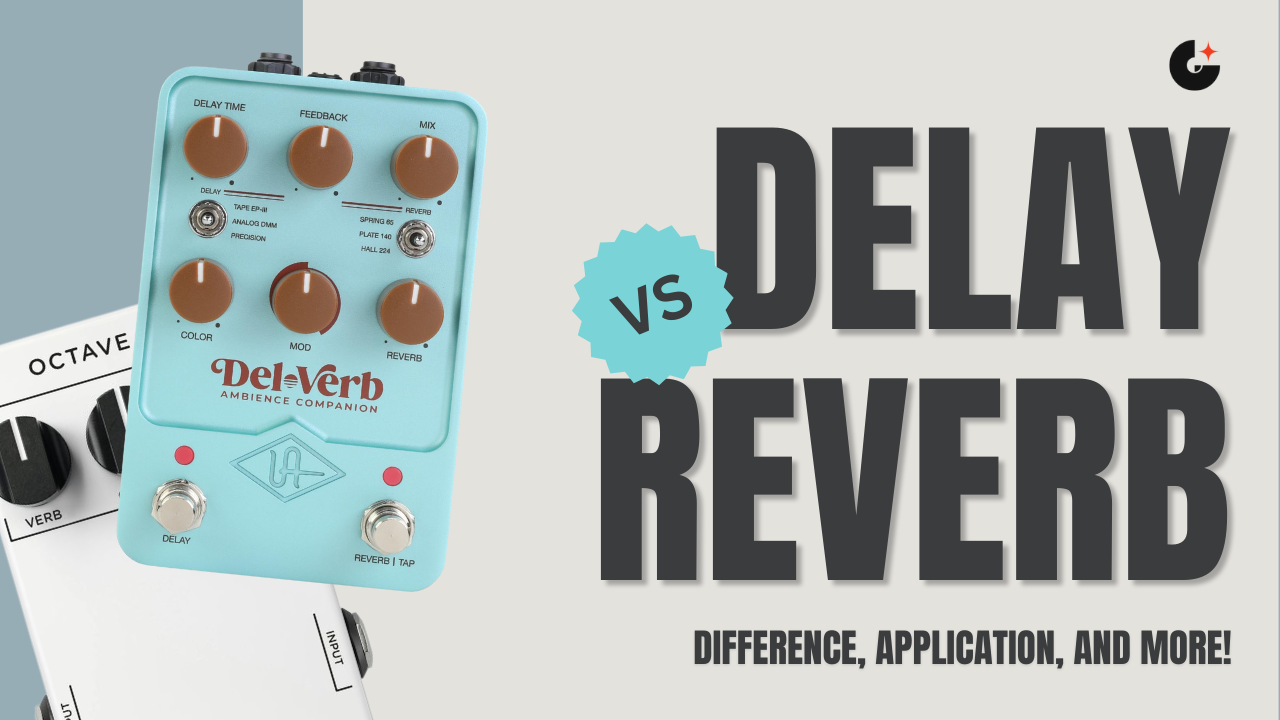
Recording Music 101: Production at Home
Nov 24, 2022Music Production 101 - Learn How To Record Music At Home
The mechanism of recording analog sound waves on an independently verifiable medium using a recorder is known as music production. A producer is someone who deals exclusively with obtaining these recordings. They supervise the recording and collaborate with the musician(s) to accomplish their artistic vision.

Recording and producing music at home may be difficult, given the number of types of equipment as well as the quality of the equipment. You may have written your best music yet, but a professional recording may not be something you could afford. However, that shouldn’t hinder you. To start things off, here are certain things that you must have to produce music in the comfort of your home.
If you are a complete beginner, we suggest you read our article on 7 Things Every Aspiring Musician Should Know.
Computer/Laptop
RAM is the crucial constituent you're looking for with laptops and computers. Most DAWs need 8 gigabytes of RAM, not very much for relatively new computers. It's enough memory to handle up to 25 soundtracks, each with its own set of instruments and outcomes. You'll also need a hard disk with 256 to 500 gigabytes of storage space, which is pretty normal for modern computers. The big space is for storing your high-definition audio files, which will take up a lot of space. Compressed tracks, on the other hand, will take lesser space, but a compressed track may lack production quality. Choose what would work best for you. You can also use this to write your music easily. To know more, read our article on Songwriting 101: 7 Tips That Help.

DAW - Digital Audio Workstation
A digital audio workstation is an interactive device or computer program which is used to record, edit, and produce music recordings. This is the primary software that you will use on your laptop. There are numerous DAWs available, with prices ranging from free to a few thousand dollars. Many provide subscription plans with different tiers, with higher-priced tiers providing access to more features.

Having said that, even the most basic tiers of most DAWs include 16-track recording and the majority of the features you'll require. Some of the best DAWs include PreSonus Studio One 6, Reaper 6, AVID Pro Tools, and so on.
Microphone
Something to attach to your audio system and record your music is necessary. Fortunately, a high-quality studio microphone can be purchased for less than $100. The inbuilt microphone on your system should not be your best bet because that microphone is not built for professional music recording, hence audio clarity and quality will be compromised.

Dynamic and condenser microphones are the two main types. A moving coil magnetostrictive diaphragm is used in dynamic microphones. They're ideal for live performances and recording loud instruments like enhanced drums and guitars. Drum kits are notoriously hard to precisely document. Conversely, condenser microphones employ a conductive diaphragm that oscillates in response to sound pressure. Since their technology makes them more precise than dynamic microphones, they're ideal for capturing acoustic guitars and vocals. Condenser microphones, which use XLR output, also demand an external electricity source, but you'll have one already if you purchased an audio interface.
Headphones
You'll need a pair of diagnostic headphones designed particularly for recording. While purchasing, look for terms like ‘studio,’ or ‘professional.’ The aim is for the headphones’ resonance frequency to be as flat as possible so that your audio is a true representation of what you've recorded. You may use special sound systems called studio monitors for this purpose, but they are more highly-priced than headsets. They’re also much louder because they're real speaker systems, making them unsuitable for apartment living.

An appropriate space - home studio!
You should tread cautiously while selecting an area for your home studio. You're set if you live in a house with a guest bedroom! However, if you reside in an apartment or another location with limited room, your bedroom may invariably double as your music studio. Bedrooms are technically not structured to serve as a home studio. You'll have to perform a procedure called acoustic treatment to turn your chosen room into an appropriate recording atmosphere.

Make sure that you set realistic expectations from your surroundings and the kind of equipment you have to produce your music. A home studio will not give the same outcome as a record label’s recording studio, and you need to be mindful of the limitations you will inevitably face. However, make sure that you are doing the best you can with whatever resources you have acquired.
Get the best out of the DAW, mix, master, experiment with different tools, use the full capacity of your laptop, and let that room have the best home studio you could have asked for. For an emerging musician and one who cannot afford greater luxuries, a home studio with all the basic devices should be enough for a great kickstart!
If you are interested in marketing your music, look into our blog articles on Top 9 Music Marketing Strategies and Music Marketing: 5 Methods That Actually Work.
Do you want to get playlisted? Submit your tracks to us on our submission platform!
Don't miss my newsletter!
Join me on a music entrepreneurship journey with new tips and tricks delivered straight to your inbox.
We hate SPAM. We will never sell your information, for any reason.




